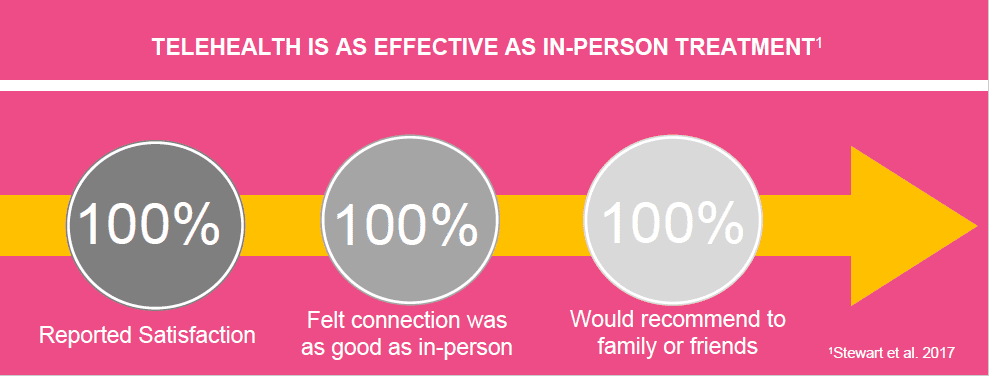Reducing Barriers and Expanding Access
Most children who need mental health services do not receive them, particularly those children who have experienced trauma. The Telehealth Outreach Program’s goal is to reduce barriers and expand access to trauma specific and evidence-based mental health services to the children and families we serve.

Advantages Of Telehealth
- Research shows that TF-CBT via telehealth is just as effective as in-person treatment.
- Allows for flexibility and accommodations for families with busy schedules.
- Decreased class time missed by children for mental health services.
- Decreased work time missed by caregivers for mental health services.
- Reduces common transportation and distance barriers to treatment.
- Allows for more regular and consistent treatment attendance which can improve outcomes and reduce length of treatment.


Telehealth Services
At the Children’s Advocacy Centers across the state, we provide evidence-based trauma treatment for children and families exposed to various traumas such as sexual abuse, physical abuse, domestic violence, community violence, human trafficking, and neglect. Therapy services through the Telehealth Outreach Program at the Children’s Advocacy Center’s are provided at no cost to the child or family. Our clinicians have been trained in how to adapt evidence-based trauma treatment models to be delivered with fidelity via telehealth. Currently we provide the following evidence-based trauma treatments through the Telehealth Outreach Program:
Trauma-Focused Cognitive Behavioral Therapy (TF-CBT; Cohen, Deblinger & Mannarino, 2004) is an evidence-based treatment for children ages 3-18. TF-CBT integrates cognitive behavioral techniques with trauma-specific interventions. The model has been researched in numerous randomized clinical trials and is considered the Best Practice model for reducing traumatized children’s emotional and behavioral problems. Research through the Medical University of South Carolina suggests that TF-CBT is as effective when delivered via telehealth as in-person. Telehealth TF-CBT is recommended for children ages 7 and older. Through the Telehealth Outreach Program TF-CBT can be delivered via telehealth at families’ homes or schools. Children and families who receive TF-CBT meet weekly with a therapist, both individually and jointly. The treatment typically lasts 12-20 sessions.
FAQ Telehealth Treatment
Telehealth is simply receiving mental health services through electronic means whereby the clinician and client are in two different locations. Sessions are accessed through a secure video conferencing platform. A telehealth screening and thorough assessment are conducted to determine if telehealth services are a good fit for a child and family.
Mental health services are delivered through a secure video conferencing platform between the clinician, child, and family. This is set up by the CAC.
Screening
Assessment
Treatment
Telehealth services are available for children ages 7 -18.
Eligibility for the program will be determined at assessment.
A laptop, computer, or tablet with internet connection is required to connect to telehealth services. If you do not have one, equipment may be available for loan from the CAC. The secure video conferencing system is cloud based, with point to point encryption which meets HIPAA criteria for privacy. Platforms such as Skype and FaceTime are not considered secure.
Telehealth services need to take place in a secure, private setting to ensure confidentiality. Services can take place in the home, at school, or another community agency. For safety, a designated adult is required to be available during the session and this may be verified.
One of the most important predictors of healing after trauma is support from caregivers. Caregivers play an integral role in helping a child heal and ultimately treatment works best when caregivers are involved. A caregiver is required to be present during home-based telehealth services and participate, as needed, in the session. This includes checking in with the clinician at each session, supporting the child, and encouraging practice of skills.
